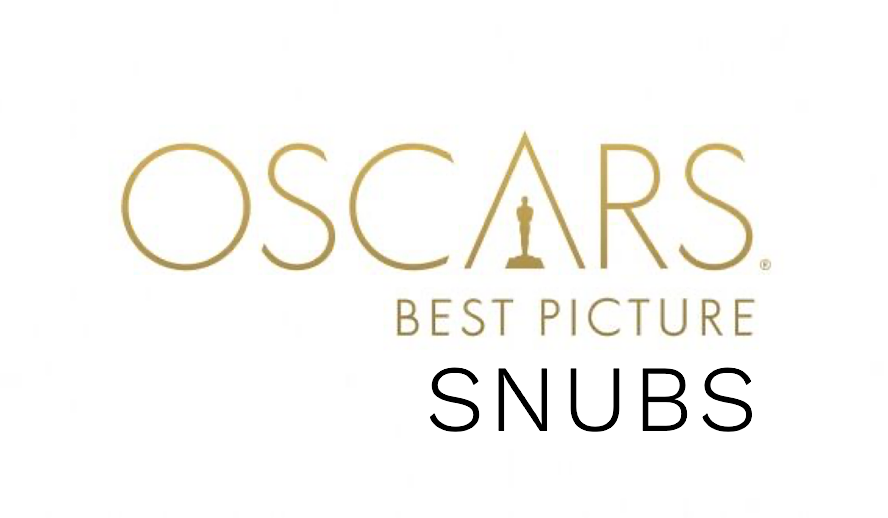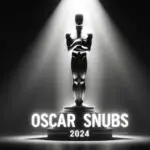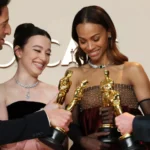Table of Contents

Photo: Best Picture Snubs
Oscars 2024 is in a few days. With Cillian Murphy, Bradley Cooper, Margot Robbie, ‘Barbie’, Christopher Nolan, ‘Oppenheimer’, ‘Maestro’, all vying for the gold Academy Award, let us take a look at the past winners who were snubbed.
The Oscar for Best Picture may be the highest honor that a film could earn, but the Academy members who vote on the matter are anything but infallible–in fact, some of them don’t even watch the nominated movies at all. Audiences are often disappointed by the pick for Best Picture, but subjectivity mandates that there will always be some reasonable dissent–that said, this article will look back at some of the most widely agreed upon upsets that warrant a closer inspection.
Related article: The Complete List of 2021 Oscar Nominations – Celebrations, Surprises & Snubs | The Show Must Go On
Related article: April Movies Release Schedule: The Most Accurate List of Every Movie Coming Out in April – Live Updates
Sometimes, it just boils down to a difficult choice between incredible films–1942, for instance, saw John Ford’s ‘How Green Was My Valley’ win Best Picture over ‘The Maltese Falcon’, ‘Sergeant York’, and ‘Citizen Kane’. 1995 saw ’Forrest Gump’ win over ‘The Shawshank Redemption’ and ‘Pulp Fiction’, while 1977 saw ’Rocky’ win over ‘All the President’s Men’, ‘Network’, and ‘Taxi Driver’ (which makes its overarching rags-to-riches narrative all the more impressive).
Other times, audiences are left so dissatisfied by the Academy’s ultimate decision that even Billy Crystal can’t smooth it over–here’s a look at those.
Here Are the Biggest Oscar Mistakes – Worst Best Picture Snubs:
2019 – ‘Green Book’
Earning over $300 million on a budget of $23 million, ‘Green Book’ delivered an impressive return on investment–its victory at the 91st Academy Awards for Best Picture, however, drew sharp criticism.
Mahershala Ali and Viggo Mortensen may have had charming chemistry as a Black piano virtuoso and his White chauffeur on a tour through the Deep South in 1962, but complaints levied by detractors included the film’s clichéd depiction of racism and interracial friendship, as well as its evocation of the ‘White savior” trope.
Subscribe to Hollywood Insider’s YouTube Channel, by clicking here.
Among the most outspoken critics of the Academy’s decision was Spike Lee, whose film ‘BlacKkKlansman’ was in competition for Best Picture–he was quoted as saying, “I thought I was courtside at the Garden. The ref made a bad call… Every time somebody is driving, I lose.”
The latter portion of the quote references ‘Driving Miss Daisy’, winner of the Oscar for Best Picture in 1990 that starred Morgan Freeman as Hoke Colburn, the subservient Black chauffeur to Jessica Tandy as the titular Daisy Werthan (Tandy would win the Oscar for Best Actress, becoming the oldest winner of the award in history)–that same year, Spike Lee’s seminal ‘Do the Right Thing’, now hailed as one of the best films of all time, failed to earn a nomination for Best Picture.
Related article: Worst Oscar Snubs: The Academy Awards Failed By Ignoring These Great Movies and Performances
30 years later, the Academy would again vote for chauffeur-based race exploration over anything Spike Lee had to say, but ‘BlacKkKlansman’ wasn’t the only other serious contender–Marvel’s ’Black Panther’ was not only the first-ever superhero film to be nominated for Best Picture, but also featured a predominantly Black cast (including iconic performances by the late Chadwick Boseman opposite Michael B. Jordan).
Also in the competition that year was ‘Bohemian Rhapsody’, ‘The Favourite’, ‘Roma’, ‘A Star is Born’, and ‘Vice’–so what business did ‘Green Book’ have winning?
Related article: The Power of Positivity: Ikorodu Bois + Chris Hemsworth + Russo Brothers + Sam Hargrave
Limited Time Offer – FREE Subscription to Hollywood Insider
2018 – ‘The Shape of Water’
Guillermo del Toro’s ‘The Shape of Water’ was by no means a bad film, combining classic Hollywood movie monster influences with a socially relevant Cold-War love story (also set in 1962) between woman and fish-man–benefitting from Del Toro’s unique visual acumen, it’s a heartfelt, well-crafted film.
That said, the competition that it faced for Best Picture was some of the stiffest of any single year in history—‘Call Me by Your Name’, ‘Darkest Hour’, ‘Dunkirk’, ‘Get Out’, ‘Lady Bird’, ‘Phantom Thread’, ‘The Post’, and ‘Three Billboards Outside Ebbing, Missouri’.
Prior to the ceremony, ‘Three Billboards’, starring Frances McDormand, was the odds-on favorite to win, telling the story of a woman who rents three billboards outside the fictional town of Ebbing, Missouri, to display messages that call attention to her daughter’s unsolved rape and murder (it obviously wouldn’t win, but McDormand won Best Actress and Sam Rockwell won Best Supporting Actor for his role as Officer Jason Dixon).
‘Call Me by Your Name’, featuring the breakthrough performance of Timothée Chalamet, became one of the most important Gay films of all time–Chalamet would also appear in ‘Lady Bird’, which marked the solo directorial debut of Greta Gerwig and became the best-reviewed film of the year with its poignant coming-of-age story.
Related article: Hollywood Insider’s CEO Pritan Ambroase: “The Importance of Venice Film Festival as the Protector of Cinema”
Related article: The Masters of Cinema Archives: Hollywood Insider Pays Tribute to ‘La Vie En Rose’, Exclusive Interview with Director Olivier Dahan
Jordan Peele would invent a new genre with ‘Get Out’, one of the most unexpected vehicles of social criticism that combined horror with black comedy, while ‘Dunkirk’ would be hailed as one of the best war films of all time.
In the face of so many landmark films, some were stunned that what ultimately took home Best Picture was the movie about fish sex, seeming like the safest pick without having to actually decide which movie was the “best.” In this way, we first take note of one of the Academy’s most common recurring foibles–taking the safe route and disappointing in the process.
Related article: Oscar Snubs: The Top 10 Actors Ignored By Oscars for Best Actor & Best Actress Awards
2006 – ‘Crash’
The most notorious Best Picture snub in recent memory, it seems like the only reason that anybody even remembers ‘Crash’ is that it didn’t deserve to win–even director Paul Haggis himself would later say in a 2015 interview, “Was it the best film of the year? I don’t think so.”
Author and journalist Ta-Nehisi Coates gave the film a scathing indictment in an Atlantic piece written on December 30, 2009, entitled ‘Worst Movie of the Decade’— “If you’re angry about race, but not particularly interested in understanding why you probably like ‘Crash’. If you’re Black and believe in the curative qualities of yet another ‘dialogue around race,’ you probably liked ‘Crash’. If you’re White and voted for Barack Obama strictly because he was Black, you probably liked ‘Crash’. If you’ve ever used the term “post-racial” or “post-Black” in a serious conversation, without a hint of irony, you probably liked ‘Crash’.”
Related article: One of the Most Beautiful Love Stories ‘God’s Own Country’ is a Must Watch for Fans of ‘Call Me By Your Name’
Related article: Remembering Heath Ledger – A Tribute to the Legendary Superstar
‘Crash’ is generally seen as having been the Academy’s “safe” pick in contrast to the unabashed courageous ‘Brokeback Mountain’, which Academy members voted in 2015 as the film that should’ve won.
1999 – ‘Shakespeare in Love’
‘Shakespeare in Love’ winning over Steven Spielberg’s ‘Saving Private Ryan’ in 1999 is as notable an upset as ‘Crash’, but the latter still stands alone as a uniquely divisive and ham-fisted film–what makes ‘Shakespeare in Love’ truly significant, however, is the way in which it changed the landscape of Oscar campaigning forever.
Harvey Weinstein, who is currently serving his sentence of 23 years at Wende Correctional Facility for one count of third-degree rape and one count of criminal sexual assault in the first degree, infamously embarked on a publicity blitz that involved aggressive bullying tactics, parties, and screeners. One strategy involved sending Academy members ‘Shakespeare in Love’ on VHS to let them watch the film from the comfort of their homes–ubiquitous today, but novel at the time. Spielberg reportedly refused to “get down in the mud with Harvey,” and the rest is history.
In short, ‘Shakespeare in Love’ won the Oscar for Best Picture (and Best Actress with Gwyneth Paltrow and Best Supporting Actress with Judi Dench) when ‘Saving Private Ryan’ was all but guaranteed to win, and Weinstein’s aggressive marketing and schmoozing tactics would simply become the way that Oscar campaigns were conducted moving forward, for better or for worse.
Related article: ‘Green Book’: Can White Filmmakers Make Films on Black Stories Truthfully?
Related article: A Tribute to Steven Spielberg: The Father of the American Blockbuster
Final Thoughts
Although the award carries the superlative connotation of “Best” Picture, it’s clear that historically, the Academy has prioritized the safe pick over the right one–and it goes back much further than 1999. Peter Bart, producer and former editor-in-chief at Variety, would reminisce,
“It was April 5, 1965, and everyone I knew was talking about ‘Dr. Strangelove’ and other edgy new pictures, but there I was, attending my first Oscar ceremony, and ‘Mary Poppins’ was battling ‘My Fair Lady’ for Best Picture, ‘Father Goose’ won Best Screenplay, and ‘Dr. Strangelove’ was snubbed. I realized Hollywood was caught in a time machine.
Maybe the fact that both ‘Green Book’ and ‘The Shape of Water’ took place in 1962 reflect this latter observation, but the Oscars have undoubtedly been making concerted efforts toward diversity and modernity, particularly in the wake of the #OscarsSoWhite movement.
This year, Chloe Zhao’s ‘Nomadland’ leads as the current favorite to win, but it faces worthy competition against ‘Minari’, ‘Sound of Metal’, ‘The Trial of the Chicago 7’, ‘Mank’, ‘Promising Young Woman’, ‘Judas and the Black Messiah’, and ‘The Father’— no matter which way it goes, however, the important thing to remember is that a film is much more than the sum of its accolades.
By Daniel Choi
Click here to read Hollywood Insider’s CEO Pritan Ambroase’s love letter to Black Lives Matter, in which he tackles more than just police reform, press freedom and more – click here.
An excerpt from the love letter: Hollywood Insider’s CEO/editor-in-chief Pritan Ambroase affirms, “Hollywood Insider fully supports the much-needed Black Lives Matter movement. We are actively, physically and digitally a part of this global movement. We will continue reporting on this major issue of police brutality and legal murders of Black people to hold the system accountable. We will continue reporting on this major issue with kindness and respect to all Black people, as each and every one of them are seen and heard. Just a reminder, that the Black Lives Matter movement is about more than just police brutality and extends into banking, housing, education, medical, infrastructure, etc. We have the space and time for all your stories. We believe in peaceful/non-violent protests and I would like to request the rest of media to focus on 95% of the protests that are peaceful and working effectively with positive changes happening daily. Media has a responsibility to better the world and Hollywood Insider will continue to do so.”
More Interesting Stories From Hollywood Insider
– Want GUARANTEED SUCCESS? Remove these ten words from your vocabulary| Transform your life INSTANTLY
– Compilation: All James Bond 007 Opening Sequences From 1962 Sean Connery to Daniel Craig
– Do you know the hidden messages in ‘Call Me By Your Name’? Find out behind the scenes facts in the full commentary and In-depth analysis of the cinematic masterpiece
– A Tribute To The Academy Awards: All Best Actor/Actress Speeches From The Beginning Of Oscars 1929-2019 | From Rami Malek, Leonardo DiCaprio To Denzel Washington, Halle Berry & Beyond | From Olivia Colman, Meryl Streep To Bette Davis & Beyond
– In the 32nd Year Of His Career, Keanu Reeves’ Face Continues To Reign After Launching Movies Earning Over $4.3 Billion In Total – “John Wick”, “Toy Story 4”, “Matrix”, And Many More
best picture snubs, best picture snubs, best picture snubs, best picture snubs, best picture snubs, best picture snubs, best picture snubs, best picture snubs, best picture snubs, best picture snubs, best picture snubs, best picture snubs, best picture snubs, best picture snubs, best picture snubs, best picture snubs, best picture snubs, best picture snubs, best picture snubs, best picture snubs, best picture snubs

Daniel Choi is a writer who’s currently pursuing a BA in Film & Television from New York University. With a background in amateur film production, Daniel is fascinated by how artists’ cultural backgrounds inform their work, subconsciously or not, and how that work is then perceived by different audiences across time and space. He joined Hollywood Insider to promote its mission statement of substantive entertainment journalism, and hopes to enrich readers’ understandings of cinema through insightful analysis.








